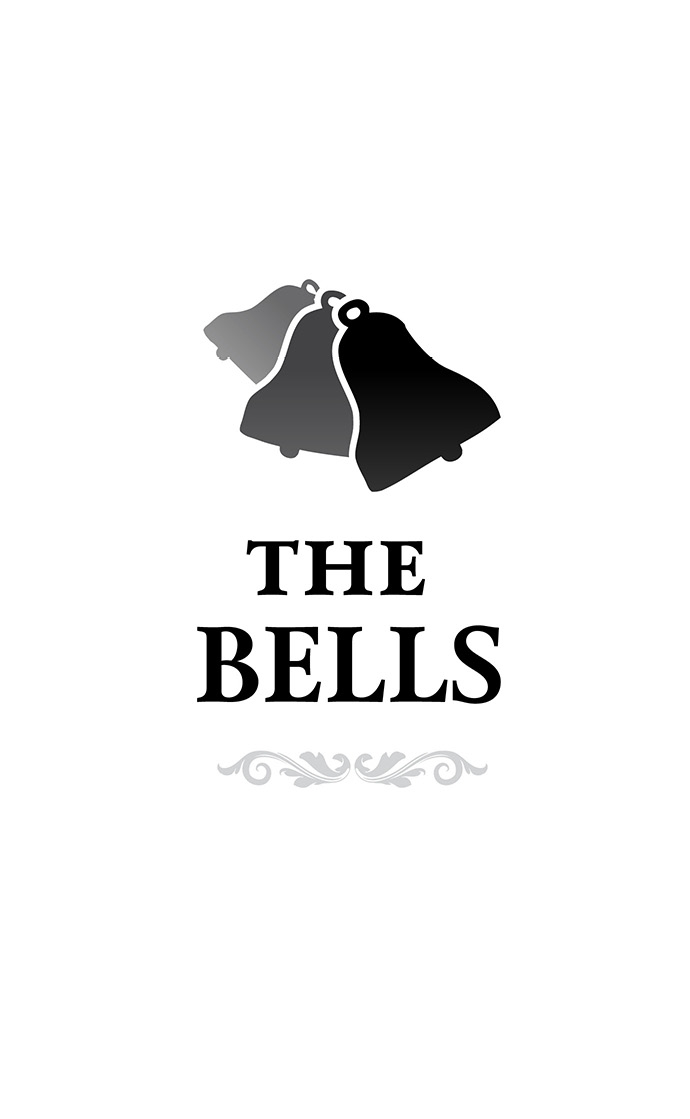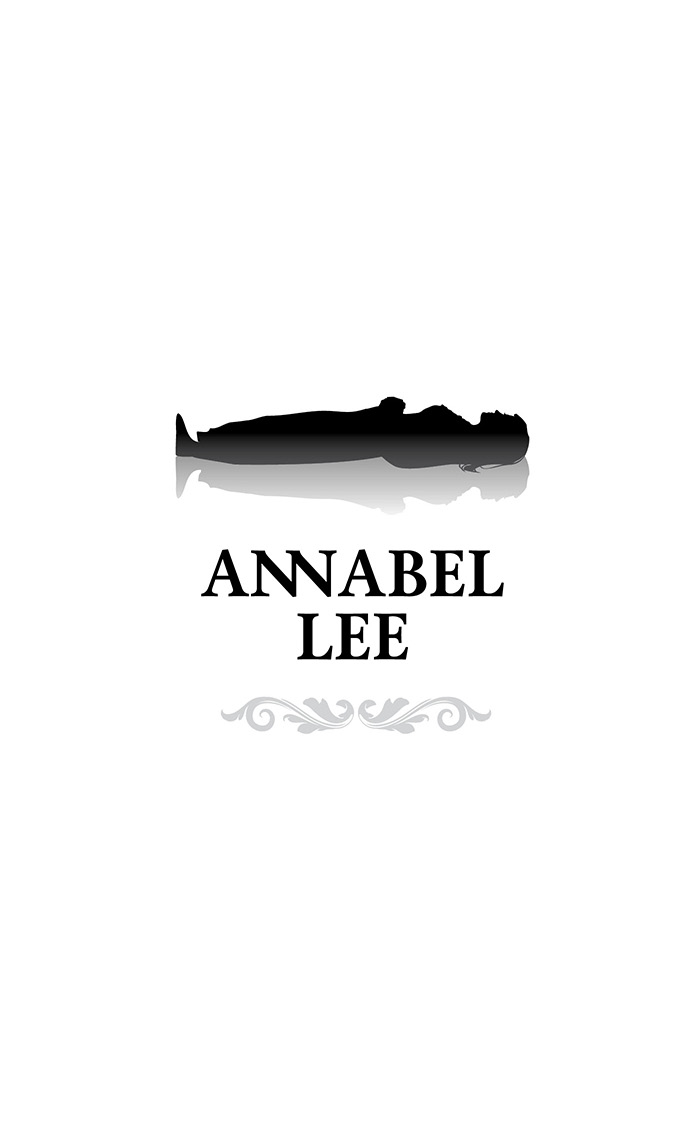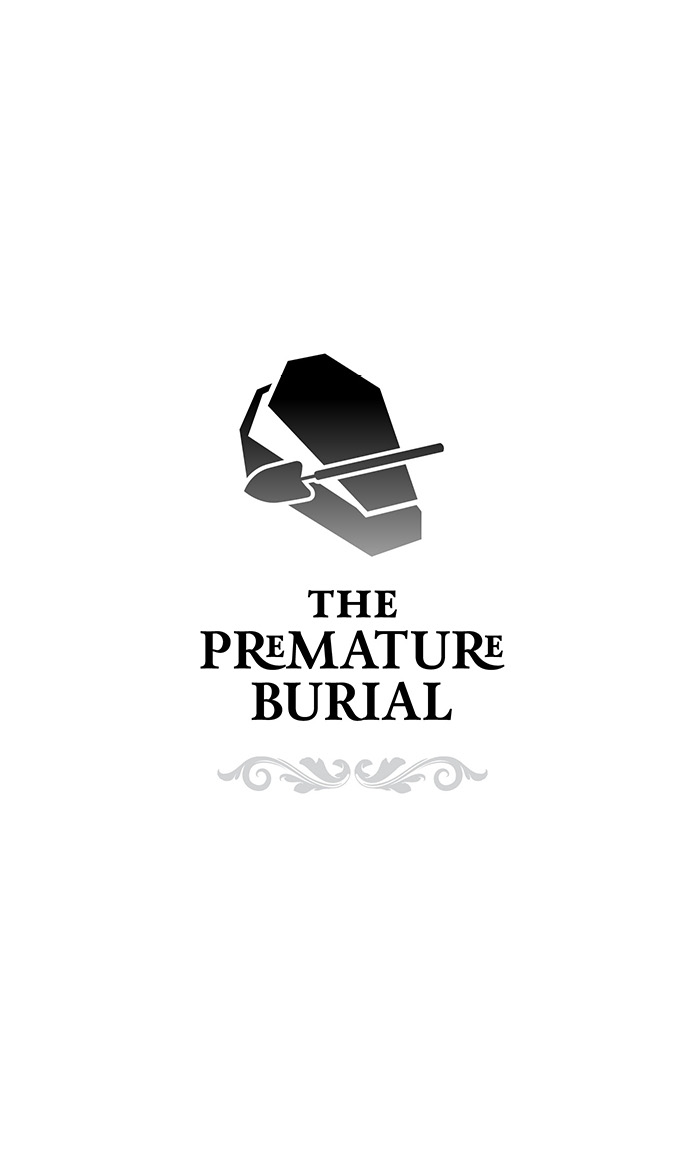The Slender Poe Anthology (21 page)
Read The Slender Poe Anthology Online
Authors: Edgar Allan Poe

They say that I spoke with a distinct enunciation, but with marked
emphasis and passionate hurry, as if in dread of interruption before
concluding the brief, but pregnant sentences that consigned me to the
hangman and to hell.
Having related all that was necessary for the fullest judicial
conviction, I fell prostrate in a swoon.
But why shall I say more? To-day I wear these chains, and am here!
To-morrow I shall be fetterless!
â
but where?

This wild incantation summons humankind's tale into a telling of bells. It began as a short lyric, evolved through expansive revisions into the 112 lines of the finished poem found among the papers that Poe left behind, and was published shortly after his death in
Sartains's Union Magazine
(December 1849).
Everything that happens in the poem happens at night; we begin in the “crystalline delight” of stars and merriment, and we move through phases golden, brazen, iron.
Runes were composed in a magical alphabet and inscribed on weapons and coins; the spells were to protect and strengthen. The runes possessed a force that interfused the visible with the invisible. Follow the word “rune” back in time; it will come to mean “whisper.”
I feel a need to bring up another Southerner, another rhapsodist of the night, another casualty of the Dionysian impulse, another visionary who wanted to bring back from the Other Side the sable truths, and sing them into the memory of his people: Jim Morrison, lead singer and lyricist for The Doors, a group instrumental in the evolution of rock theater. I think Poe would have been right at home in
Strange Days
. Here is one of the lines by Morrison that Poe might've written: “Blood is the rose of mysterious union.”
With a little passion, precision and energy, you can drive yourself a bit mad reading this poem aloud; just you and your friends, all in the company of The Mighty X.

THE BELLS
I
Hear the sledges with the bells
â
Silver bells!
What
a world of merriment their melody foretells!
How they tinkle, tinkle, tinkle,
In the icy air of night!
While the stars that oversprinkle
All the heavens, seem to twinkle
With a crystalline delight;
Keeping time, time, time,
In a sort of Runic rhyme,
To the tintinnabulation that so musically wells
From the bells, bells, bells, bells,
Bells, bells, bells
â
From the jingling and the tinkling of the bells.
II
Hear the mellow wedding-bells
Golden bells!
What
a world of happiness their harmony foretells!
Through the balmy air of night
How they ring out their delight!
â
From the molten-golden notes,
And all in tune,
What a liquid ditty floats
To the turtle-dove that listens, while she gloats
On the moon!
Oh, from out the sounding cells,
What
a gush of euphony voluminously wells!
How it swells!
How it dwells
On the Future!
â
how it tells
Of the rapture that impels
To the swinging and the ringing
Of the bells, bells, bells
â
Of the bells, bells, bells, bells,
Bells, bells, bells
â
To the rhyming and the chiming of the bells!
III
Hear the loud alarum bells
â
Brazen bells!
What
tale of terror, now, their turbulency tells!
In the startled ear of night
How they scream out their affright!
Too much horrified to speak,
They can only shriek, shriek,
Out of tune,
In a clamorous appealing to the mercy of the fire,
In a mad expostulation with the deaf and frantic fire,
Leaping higher, higher, higher,
With a desperate desire,
And a resolute endeavor
Now
â
now to sit, or never,
By the side of the pale-faced moon.
Oh, the bells, bells, bells!
What a tale their terror tells
Of Despair!
How they clang, and clash, and roar!
What a horror they outpour
On the bosom of the palpitating air!
Yet the ear, it fully knows,
By the twanging
And the clanging,
How the danger ebbs and flows;
Yet, the ear distinctly tells,
In the jangling
And the wrangling,
How the danger sinks and swells,
By the sinking or the swelling in the anger of the bells
â
Of the bells
â
Of the bells, bells, bells, bells,
Bells, bells, bells
â
In the clamour and the clangour of the bells!
IV
Hear the tolling of the bells
â
Iron bells!
What
a world of solemn thought their monody compels!
In the silence of the night,
How we shiver with affright
At the melancholy meaning of their tone!
For every sound that floats
From the rust within their throats
Is a groan.
And the people
â
ah, the people
â
They that dwell up in the steeple,
All alone,
And who, tolling, tolling, tolling,
In that muffled monotone,
Feel a glory in so rolling
On the human heart a stone
â
They are neither man nor woman
â
They are neither brute nor human
â
They are Ghouls:
â
And their king it is who tolls:
â
And he rolls, rolls, rolls, rolls,
Rolls
A pæan from the bells!
And his merry bosom swells
With the pæan of the bells!
And he dances, and he yells;
Keeping time, time, time,
In a sort of Runic rhyme,
To the pæan of the bells
â
Of the bells:
â
Keeping time, time, time,
In a sort of Runic rhyme,
To the throbbing of the bells
â
Of the bells, bells, bells
â
To the sobbing of the bells:
â
Keeping time, time, time,
As he knells, knells, knells,
In a happy Runic rhyme,
To the rolling of the bells
â
Of the bells, bells, bells:
â
To the tolling of the bells
â
Of the bells, bells, bells, bells,
Bells, bells, bells
â
To the moaning and the groaning of the bells.

Shortly after Virginia's funeral, Poe lightly penciled the following words on a manuscript of
Eulalie,
a poem moonlit with “purple and pearl,” celebrating a happy marriage:
Deep in the earth my love is lying
And I must weep alone.
By May 1849, he had transformed his sorrow and grief into the beautiful
Annabel Lee.
This poem was my introduction to Poe's poetry. I can't remember her name, but I do recall my English instructor possessed dark hair, and dark eyes as well; eyes, it looked to me, not unfamiliar with a melancholy fatigue. But her passion for the poem, though tempered by a room full of boys and girls in their first weeks of being sophomores in high school, has all these years helped keep the poem aliveâin that strange, wondrous space inside where Poe is welcome, where he is at home.

ANNABEL LEE
It was many and many a year ago,
In a kingdom by the sea,
That a maiden lived whom you may know
By the name of Annabel Lee;
â
And this maiden she lived with no other thought
Than to love and be loved by me.
I
was a child and
she
was a child,
In this kingdom by the sea,
But we loved with a love that was more than love
â
I and my Annabel Lee
â
With a love that the wingéd seraphs of Heaven
Coveted her and me.
And this was the reason that, long ago,
In this kingdom by the sea,
A wind blew out of a cloud, chilling
My beautiful Annabel Lee;
So that her high-born kinsmen came
And bore her away from me,
To shut her up in a sepulchre,
In this kingdom by the sea.
The angels, not half so happy in Heaven,
Went envying her and me
â
Yes!
â
that was the reason (as all men know,
In this kingdom by the sea)
That the wind came out of the cloud by night,
Chilling and killing my Annabel Lee.
But our love it was stronger by far than the love
Of those who were older than we
â
Of many far wiser than we
â
And neither the angels in Heaven above,
Nor the demons down under the sea,
Can ever dissever my soul from the soul
Of the beautiful Annabel Lee:â
For the moon never beams, without bringing me dreams
Of the beautiful Annabel Lee;
And the stars never rise but I feel the bright eyes
Of the beautiful Annabel Lee:â
And so, all the night-tide, I lie down by the side
Of my darlingâmy darlingâmy life and my bride,
In her sepulchre there by the sea
â
In her tomb by the sounding sea.

